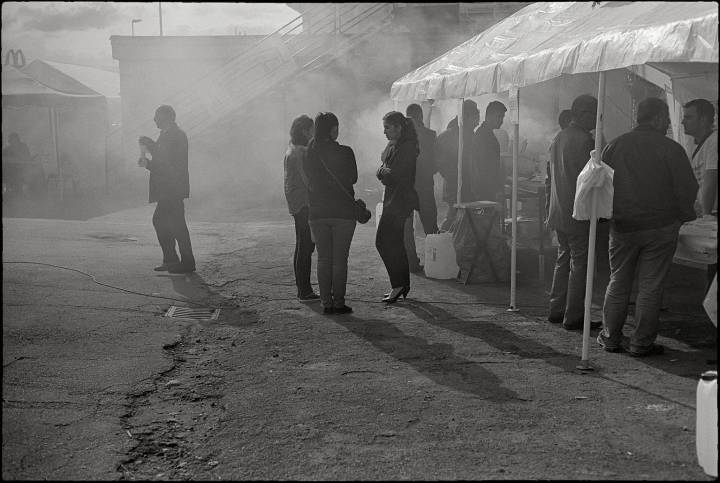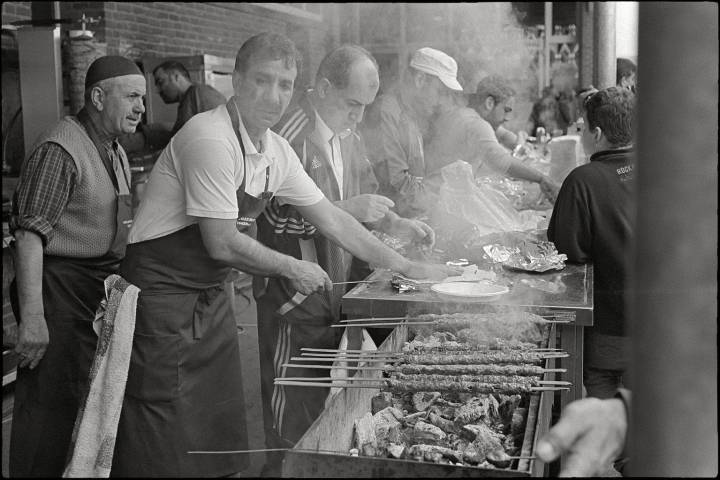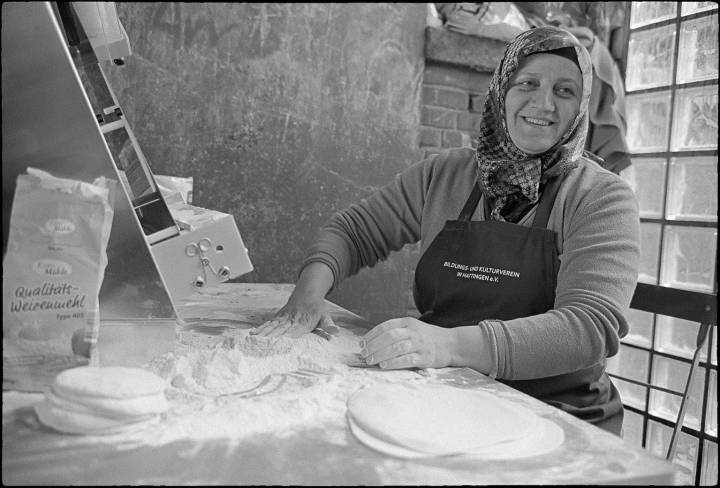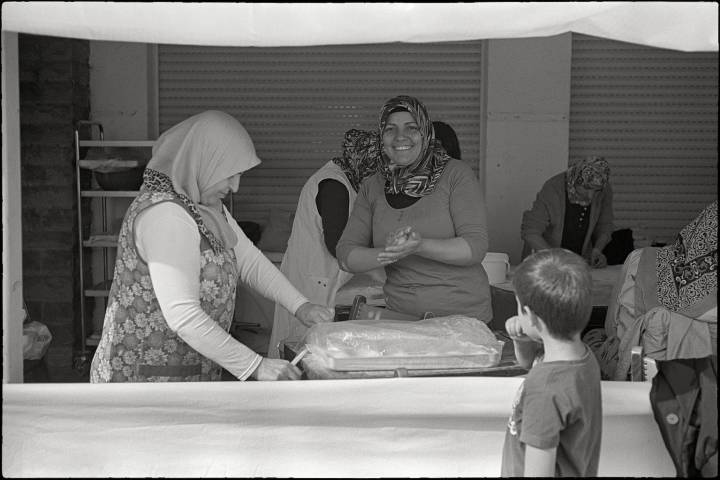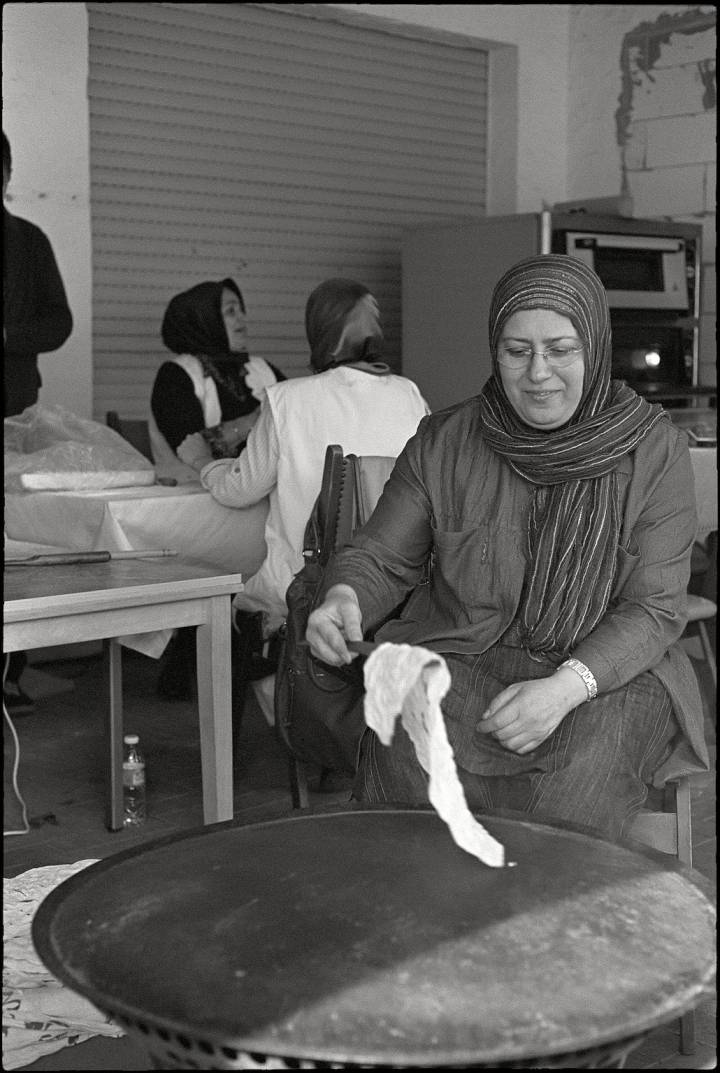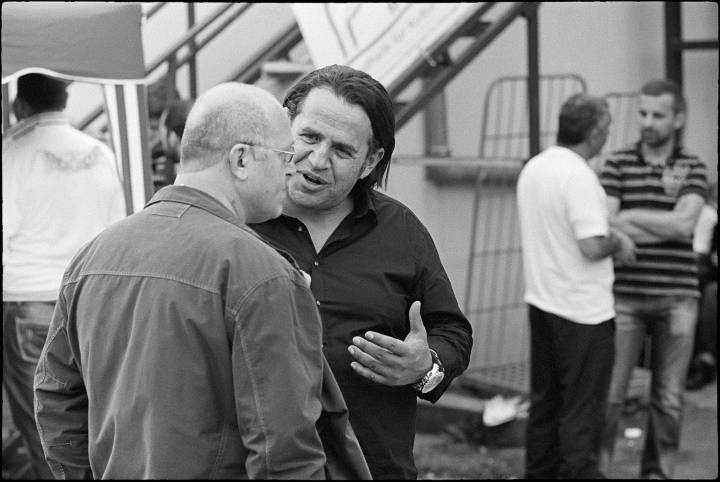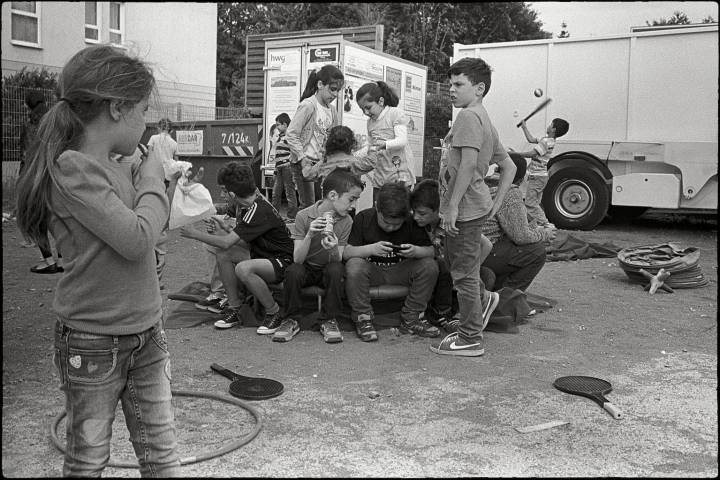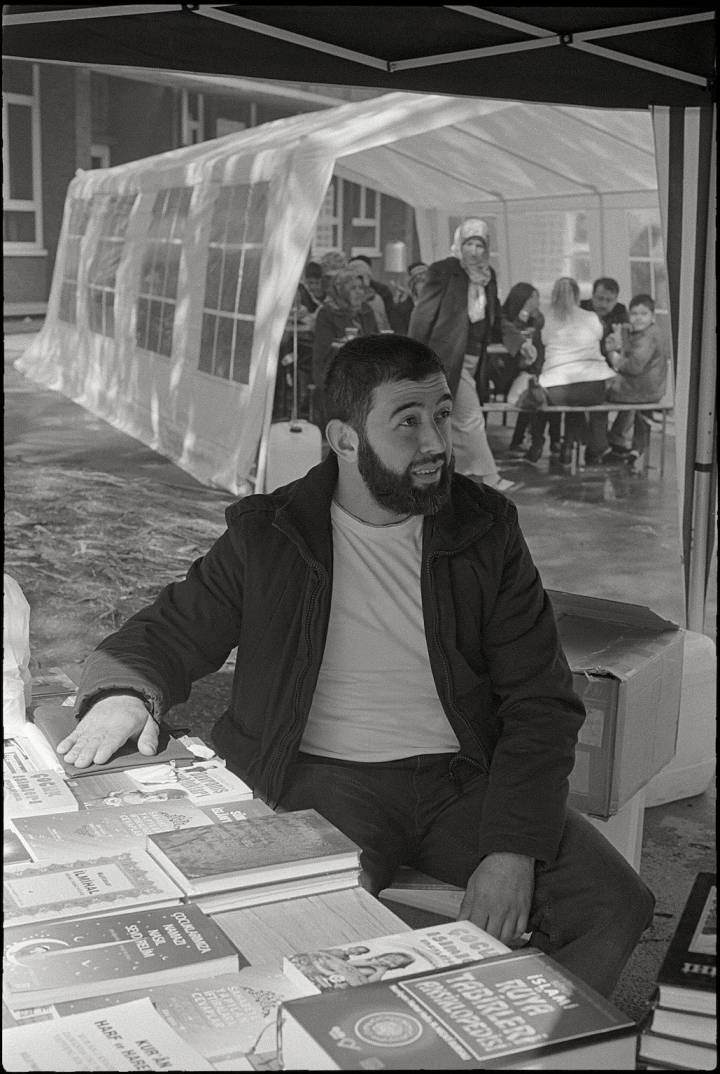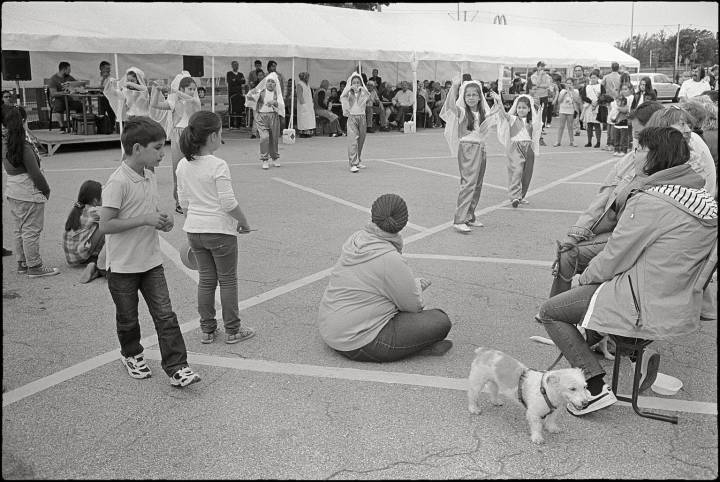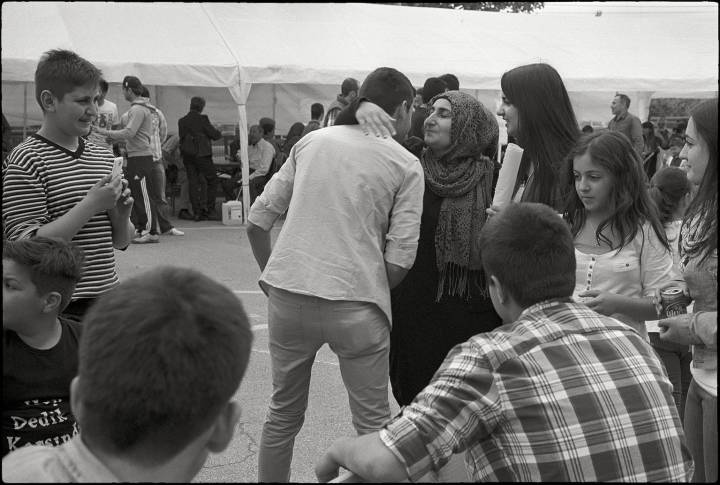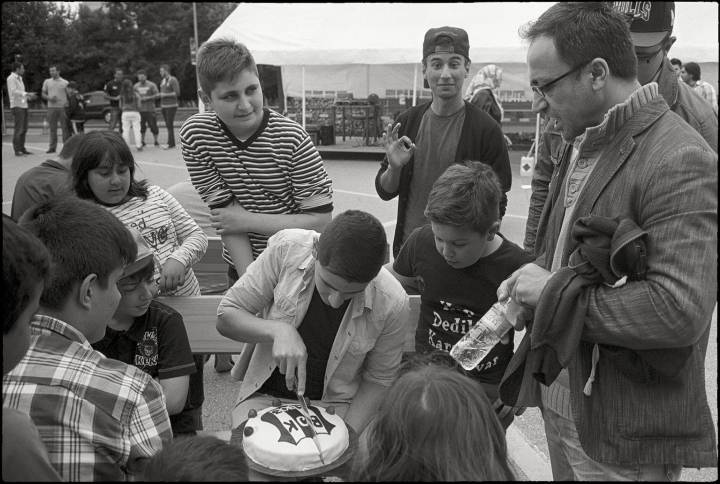I live in Germany’s largest metropolitan region, the Ruhr Metropolitan Region. It’s a melting pot not only for ore and coke, but for cultures, as well. Politics called them guest workers, some called them foreigners, today ‘migrants’ is the word of choice. But why not ‘neighbours!’? Because migrants, translated properly, means being on the moving while neighbours are sedentary. The unknown frightens us. But as soon as we get to know it, it becomes familiar. Neighbours, observed with the camera, acquainted with personally and friends made at a kermis ¬– where Turkish family and club life comes to life. Where women cook, men do barbecue and children play. Does a Christian community fair does look any different?

